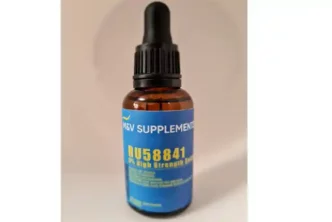With the outbreak of COVID-19 all across the world, suddenly, the use of antibacterial disinfectants has seen a massive growth. But what exactly are these antibacterial disinfectants? What is the difference between antimicrobial and antibacterial? Do antibacterial products really kill bacteria? Should we use these products? Are they safe? If these questions trigger your mind, you are on the right page. Let’s dig around these queries and find out more about antibacterial disinfectants.
So, what are antibacterial disinfectants?
The cleaning products that are labeled as antibacterial/ kill bacteria/ sanitize are antibacterial disinfectants. These disinfectants are meant to kill bacteria from different surfaces of the home. They can kill microorganisms, fungus, cold viruses and even food born bacteria like Salmonella. These cleaning products have been in the market for more than a century and have significantly reduced the spread of bacteria born sickness.
What exactly are antimicrobials?
Often antibacterial and antimicrobial are used interchangeably. These products are considered essential for everyday hygiene. But these two things are different from each other. Antimicrobials are also used to kill harmful bacteria, but they effectively work against a wide variety of microorganisms like fungi, bacteria, and many viruses. They can help in stopping the spread of harmful microbes and harmful pathogens from the surface and from our food and water, whereas antibacterial can only work on removing limited bacteria.
Why should we use antibacterial disinfectants?
- Regular cleaning products can only remove dust and dirt from surfaces, whereas disinfectants are meant to destroy the germs and bacteria that can cause illness.
- Surfaces of toilet seats, kitchen counter top, door knob might look clean, but in reality, they are contaminated by bacteria, and hence it is essential to use these products for regular cleaning.
- Food born bacteria like Salmonella can make us very sick. Worst of all, they can survive on a surface for more than 24 hours and also upon freezing. Therefore, it is essential to use disinfectants.
- Cold and cough are the most common impacts of bacterial infection. We lose many days during the year due to cold and cough. Therefore, we must get rid of the bacteria that spread cold and cough.
- Certain bacteria and germs are found on most of the surfaces, and that can survive for three days and more. They can cause sicknesses like diarrhea. Disinfecting such surfaces is, therefore, essential.
Which household products contain antibacterial agents?
Many household products contain antibacterial disinfectants such as hand wash and lotions, soaps, detergents, mouthwash, toothpaste, windows cleaner, garbage bags, etc. Therefore, you should buy these products only after reading their labels carefully.
Can antibacterial disinfectant kill coronavirus?
Covid19 is a virus, but it can be effectively controlled and killed by maintaining the correct hygiene process. Any disinfectant that contains 70% to 90% alcohol can kill coronavirus. You should first clean the surface using soap and water and then wash it with disinfectant. You should always clean the dirtier surface first and then go towards the cleaner surface to avoid soil spread on the cleaner side. Keep washing your hand regularly using antibacterial soaps to stop the spread of coronavirus.
Final thoughts
Antibacterial products contain agents like triclosan. These agents are essential to the health care industry but using them regularly at homes can compromise their effectiveness. Overuse can make the bacteria resistant to these antibacterial disinfectants. Hence, these products must be used carefully and not overused. You must also follow the manufacturer’s instructions strictly before using these products. It is best to use these products weekly or biweekly, and you can also take guidance from your health advisor for the proper usage of antibacterial products.





